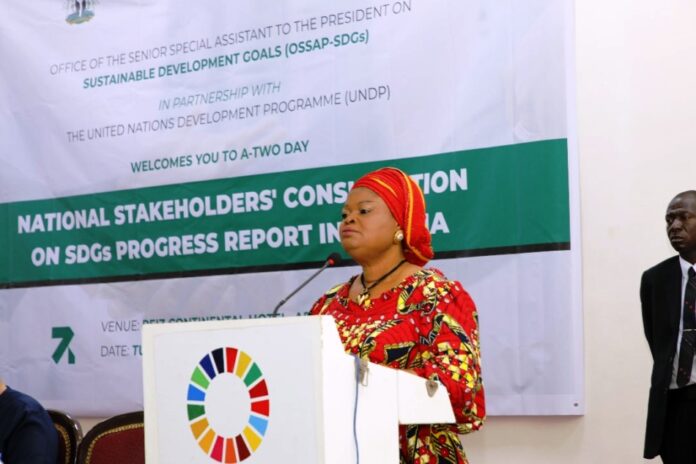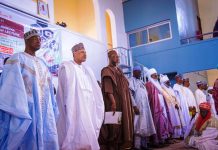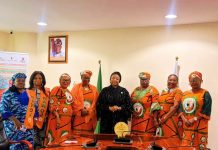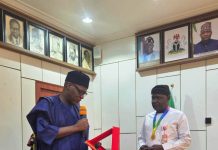The Office of the Senior Special Assistant to the President on SDGs (OSSAP-SDGs) in collaboration with the United Nations Development Programme, convened National Stakeholders’ Consultative Meeting to review Nigeria’s progress on the Sustainable Development Goals (SDGs).
The two-day consultation, slated for October 8th and 9th, 2024, aims to rally stakeholders to take responsibility for reporting an inclusive progress on the implementation of the Global Goals. This will be assessed using the 230 key performance indicators, alongside any additional metrics at the national and sub-national levels.
In her key note address, the Senior Special Assistant to the President on SDGs Princess Adejoke Orelope-Adefulire stated that the National Consultative Meeting is a “whole of society” approach, demonstrating commitment to an inclusive, broad-based and participatory implementation and tracking of progress of the SDGs in Nigeria.
Princess Orelope-Adefulire disclosed that the outcome of the 2023 United Nations Secretary General’s Summit include the recommendation of the six transition pathways (food systems; education; energy access and affordability; digital connectivity; job and social protection; climate change and biodiversity) to enable member states to fast-track the achievement of the SDGs. These she said are incidentally embedded in the thematic pillars of the MTNDP (2021 – 2025) and the cardinal objectives of the Renewed Hope Agenda of President Bola Ahmed Tinubu’s led administration.
The SSAP-SDGs described the National Stakeholder on Nigeria 2024 SDGs’ report as “an opportunity for the government to track progress, identify implementation challenges and offer key recommendations for follow-up at various levels of governance”. She was optimistic that the report will provide useful content that would aid the Nigeria’s Voluntary National Review (VNR) scheduled for presentation at the high level political forum (HLPF) in July, 2025.
Princess Orelope-Adefulire emphasized the need for expertise and resources of the public and private sector and the support of the all development partners and stakeholders, hoping that this consultation will reinforce government commitment to work closely together in support of the 2030 agenda for sustainable development in Nigeria.
Earlier, the United Nations Development Programme (UNDP), Resident Representative, Nigeria, Elsie Attafuah stated that the National consultation is an avenue to look into the accomplishment of SDGs in Nigeria so far and to confront the challenges ahead in order to enable the stakeholders come up with valuable insights on how best to achieve the goals.
Attafuah who was represented by a staff of the UNDP, Dr. Tony believes that achieving Agenda 2030 depends on what the stakeholders do now and maintains that UNDP will remain resolute to work with Nigeria and make sure that the benefits of SDGs will become a reality to all Nigerians.
Other stakeholders drawn from the private sector, civil society organizations, state focal points officers, MDAs, Development Partners and Donor Agencies re-echoed the need for collective effort, since no entity will achieve SDGs alone. Every stakeholder is expected to have monitoring mechanism for proper monitoring and evaluation.
Jimoh O. Abdulsalam
Office of the Senior Special Assistant to the President on SDGs






